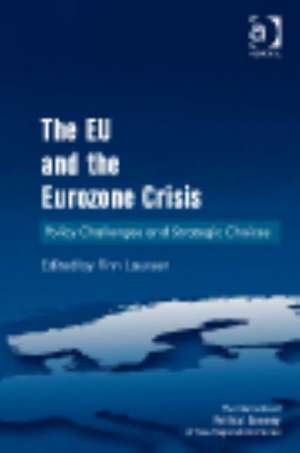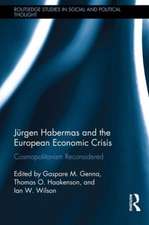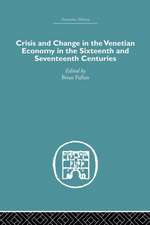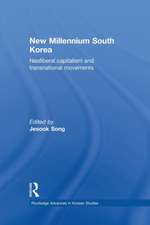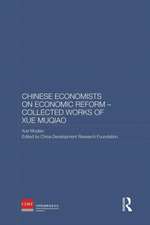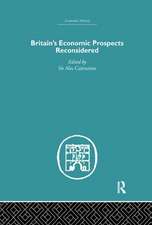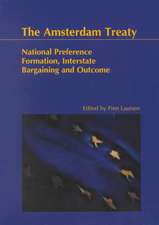The EU and the Eurozone Crisis: Policy Challenges and Strategic Choices: New Regionalisms Series
Autor Finn Laursenen Limba Engleză Hardback – 31 mai 2013
| Toate formatele și edițiile | Preț | Express |
|---|---|---|
| Paperback (1) | 323.23 lei 6-8 săpt. | |
| Taylor & Francis – 15 noi 2016 | 323.23 lei 6-8 săpt. | |
| Hardback (1) | 703.30 lei 6-8 săpt. | |
| Taylor & Francis – 31 mai 2013 | 703.30 lei 6-8 săpt. |
Din seria New Regionalisms Series
-
 Preț: 312.34 lei
Preț: 312.34 lei -
 Preț: 311.41 lei
Preț: 311.41 lei -
 Preț: 295.51 lei
Preț: 295.51 lei - 15%
 Preț: 715.33 lei
Preț: 715.33 lei - 15%
 Preț: 672.40 lei
Preț: 672.40 lei - 18%
 Preț: 1060.25 lei
Preț: 1060.25 lei - 18%
 Preț: 1000.27 lei
Preț: 1000.27 lei -
 Preț: 374.20 lei
Preț: 374.20 lei -
 Preț: 374.58 lei
Preț: 374.58 lei - 26%
 Preț: 818.67 lei
Preț: 818.67 lei - 26%
 Preț: 765.43 lei
Preț: 765.43 lei - 18%
 Preț: 1003.43 lei
Preț: 1003.43 lei - 15%
 Preț: 703.90 lei
Preț: 703.90 lei - 25%
 Preț: 768.10 lei
Preț: 768.10 lei - 25%
 Preț: 766.85 lei
Preț: 766.85 lei - 25%
 Preț: 768.64 lei
Preț: 768.64 lei - 18%
 Preț: 1061.81 lei
Preț: 1061.81 lei -
 Preț: 380.54 lei
Preț: 380.54 lei - 31%
 Preț: 766.31 lei
Preț: 766.31 lei - 25%
 Preț: 769.37 lei
Preț: 769.37 lei - 31%
 Preț: 767.20 lei
Preț: 767.20 lei - 25%
 Preț: 770.98 lei
Preț: 770.98 lei - 18%
 Preț: 1054.71 lei
Preț: 1054.71 lei - 26%
 Preț: 821.82 lei
Preț: 821.82 lei -
 Preț: 369.73 lei
Preț: 369.73 lei - 18%
 Preț: 1057.40 lei
Preț: 1057.40 lei - 18%
 Preț: 1005.01 lei
Preț: 1005.01 lei - 18%
 Preț: 1008.17 lei
Preț: 1008.17 lei - 18%
 Preț: 1109.66 lei
Preț: 1109.66 lei - 15%
 Preț: 669.94 lei
Preț: 669.94 lei - 18%
 Preț: 1055.84 lei
Preț: 1055.84 lei - 18%
 Preț: 1006.60 lei
Preț: 1006.60 lei - 15%
 Preț: 703.08 lei
Preț: 703.08 lei - 18%
 Preț: 1056.00 lei
Preț: 1056.00 lei - 25%
 Preț: 825.63 lei
Preț: 825.63 lei - 18%
 Preț: 1056.95 lei
Preț: 1056.95 lei - 18%
 Preț: 1000.27 lei
Preț: 1000.27 lei - 18%
 Preț: 1058.38 lei
Preț: 1058.38 lei - 15%
 Preț: 669.94 lei
Preț: 669.94 lei - 30%
 Preț: 849.78 lei
Preț: 849.78 lei - 28%
 Preț: 822.86 lei
Preț: 822.86 lei - 18%
 Preț: 1005.80 lei
Preț: 1005.80 lei - 18%
 Preț: 1056.28 lei
Preț: 1056.28 lei - 26%
 Preț: 766.31 lei
Preț: 766.31 lei - 18%
 Preț: 1057.09 lei
Preț: 1057.09 lei - 30%
 Preț: 769.37 lei
Preț: 769.37 lei - 18%
 Preț: 1108.37 lei
Preț: 1108.37 lei - 26%
 Preț: 847.31 lei
Preț: 847.31 lei - 28%
 Preț: 737.94 lei
Preț: 737.94 lei
Preț: 703.30 lei
Preț vechi: 857.68 lei
-18% Nou
Puncte Express: 1055
Preț estimativ în valută:
134.57€ • 140.51$ • 111.38£
134.57€ • 140.51$ • 111.38£
Carte tipărită la comandă
Livrare economică 04-18 aprilie
Preluare comenzi: 021 569.72.76
Specificații
ISBN-13: 9781409457299
ISBN-10: 140945729X
Pagini: 242
Dimensiuni: 156 x 234 x 16 mm
Greutate: 0.53 kg
Ediția:New.
Editura: Taylor & Francis
Colecția Routledge
Seria New Regionalisms Series
Locul publicării:Oxford, United Kingdom
ISBN-10: 140945729X
Pagini: 242
Dimensiuni: 156 x 234 x 16 mm
Greutate: 0.53 kg
Ediția:New.
Editura: Taylor & Francis
Colecția Routledge
Seria New Regionalisms Series
Locul publicării:Oxford, United Kingdom
Notă biografică
Finn Laursen, Canada Research Chair in EU Studies and Professor of Political Science, Dalhousie University, Halifax, NS, Canada.
Recenzii
’The Eurozone crisis is perhaps the most relevant event in European politics since the end of World War II. This book is an important contribution to understanding the current path of the European integration process, not only in relation to this crisis, but in other policy areas. It is a valuable contribution for students and scholars of European politics.’ Susana Borrás, Copenhagen Business School, Denmark
Cuprins
Part I Introduction; Chapter 1 The Eurozone Crisis and Other Policy Challenges in the EU, Finn Laursen; Part II The Eurozone Crisis; Chapter 2 Eurozone: Creeping Decay, Sudden Death or Magical Solution?, Kurt Hübner; Chapter 3 The Eurozone Crisis and the Fiscal Treaty: Implications for the Social Dimension and Democracy, Robert Finbow; Chapter 4 Britain and Monetary Union, Alasdair Blair; Part III Other Policy Developments and Challenges; Chapter 5 The Common Agricultural Policy: The Right Path versus Blind Alleys, Jacek Chotkowski, Benon Gazi?ski; Chapter 6 New Challenges for EU Trade Policy-making: Why is the EU Pursuing a Comprehensive Economic and Trade Agreement with Canada?, Stefanie Rosskopf; Part IV Deepening, Widening or Multispeed Integration?; Chapter 7 Direct Democracy: Remedying the Democratic Deficit?, Ece Ozlem Atikcan; Chapter 8 Europe After the Greek Default: Widening, Deepening, or Splitting?, Imtiaz Hussain; Chapter 9 Chronic Anxiety: Schengen and the Fear of Enlargement, Ruben Zaiotti; Chapter 10 Crossroads of Integration? The Future of Schengen in the Wake of the Arab Spring, Kiran K. Phull, John B. Sutcliffe; partV Concluding Chapter; Chapter 11 Equilibrium, Further Deepening or More ‘Variable Geometry’: Reflections on the Future of European Integration, Finn Laursen;
Descriere
The global financial crisis, which started in the United States in 2007 and spread to Europe in 2009, has shown that the Economic and Monetary Union is faulty, preventing monetary policy autonomy and inhibiting competitiveness. Part of the response to the crisis so far has been incremental moves towards fiscal and banking union, which will mean a deepening of European integration at a time when many observers believed that a certain equilibrium had been reached after the entry into force of the Lisbon Treaty in 2009. This book focuses on these developments as well as analysing other economic policies that affect the general economic welfare of the EU, including agriculture, trade and immigration policies. The book puts the Eurozone crisis into the wider context of deepening and widening.
